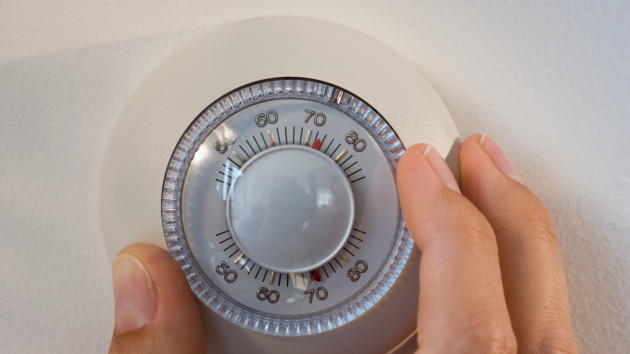
(NEW YORK) — Americans are expected to see higher energy bills when it comes to heating their homes this winter, according to a new analysis from the U.S. Energy Information Agency released this week.
The independent agency within the Department of Energy found that homes heated with natural gas could see prices 28% higher than last winter, while homes heated by electricity will see a 10% increase and propane heat will see a 5% increase. At least 90% of homes in the U.S. use natural gas or electricity for heat.
EIA said the supplies of fuels like natural gas, propane, or heating oil are low and could struggle to meet demand if temperatures are especially cold or supply chain issues make it difficult to deliver to where the fuels are needed.
Rusty Braziel, CEO & Principal Energy Markets Consultant for RBN Energy, said energy prices are dealing with several factors that are putting pressure on the market.
“It’s a whole different kind of market turmoil than we’ve ever seen before,” he said in a briefing with reporters.
“We’ve got a hot war in Europe, we’ve got sky-high prices, we got Russia’s use of energy as a weapon. We’re still recovering from a global pandemic. Our markets are absorbing a massive new energy transition and this economy is shaky, recession could be just around the corner. National politics are wacky, and producer discipline has basically reset the shale supply curve. So if that ain’t wild, I don’t know what is,” Braziel said.
The EIA report factors in the National Oceanic and Atmospheric Administration’s forecast for a colder-than-average winter in some parts of the country. Officials said demand for energy could change if temperatures dip colder than predicted.
Energy costs are another factor that could lead to difficulty for many families dealing with the cost of living amid rising inflation. In 2020, 34 million U.S. households, about 27% of the country, reported having difficulty paying their energy bills or keeping their home at an unsafe temperature to avoid higher bills, according to an EIA survey.
The Department of Energy said there are multiple ways that households can reduce energy bills by switching to more energy-efficient appliances or lighting and making homes better at keeping heat in and cold air out by sealing air leaks around windows or other points where heat could escape. The Biden administration has launched programs that include more than $3 billion to help low-income homeowners “weatherize” or retrofit their homes to be more energy efficient.
The Inflation Reduction Act offers some tax credits to help with the up-front cost of installing more energy-efficient appliances or heaters. The advocacy group Rewiring America has a calculator where homeowners or renters can calculate what benefits they may be eligible to receive.
Copyright © 2022, ABC Audio. All rights reserved.
